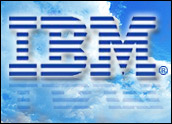
A competitor of computing giant IBM has accused Big Blue of violating antitrust laws in the European Union.
In a complaint to the European Commission, the EU’s Brussels-based antitrust authority, Tampa, Fla.-based mainframe computer maker T3 Technologies has accused IBM of using its dominance of the mainframe market to shut out competitors.
T3 claims that IBM keeps competitors from selling mainframes by tying the sale of its myriad operating systems to its mainframe products. T3 also claims that IBM has withheld patent licenses and other intellectual property, a move that has hurt competition.
Neither T3 nor IBM officials could be reached for comment.
IBM’s stock closed down 3.46 percent to US$81.98 per share on Tuesday.
EC Will Investigate
European antitrust law and procedure works very different from antitrust law in the United States, Peter Vogel, a partner with Gardere Wynn Sewell, told the E-Commerce Times. In the U.S., antitrust complaints are filed with a federal court. A trial is then held with each side presenting its case, and a judge then makes a decision.
In Europe, antitrust claims are filed with the European Commission. Instead of holding a trial, the EC investigates the complainant’s claims and does a thorough market analysis. Then, the Commission decides whether to bring charges, and if it does, it gives the violator eight weeks to respond. After that, the EC decides whether to levy a fine or issue an order for the alleged violator to change its business practices. It could do both, Vogel said.
In the case of IBM, “this is just the beginning of a process,” he said. “Just because someone brings a charge doesn’t mean a company is going to be in harm’s way.”
A similar procedure recently played out in Brussels involving a complaint brought by Web browser company Opera against Microsoft, maker of the ubiquitous Internet Explorer browser. The EC issued a preliminary ruling that Microsoft’s tying of the Internet Explorer browser to the Windows operating system violates European antitrust law.
Mainframe Monopoly
IBM is indeed one of the dominant players in the mainframe computing market, especially in the U.S. and in Europe, Vogel said.
The European Commission probably won’t restrict its investigation to the mainframe market, though. In today’s technology landscape, servers and mainframes serve somewhat interchangeable functions, so the commission will have to look at both, he said. “They’ll have to study the spectrum of technologies. This is a classic computer industry problem, and it is not a new concept.”
Effects of Microsoft Ruling
The EU has been quite strict with U.S. companies of late, as evidenced by a recent ruling against Microsoft, noted Raymond Van Dyke, an attorney and partner at Merchant & Gould in Washington, D.C.
“With the recent EU antitrust decision against Microsoft, T3 Technologies is likely emboldened to take on Big Blue,” Van Dyke speculated. “The disparate antitrust laws do cause problems for international corporations desirous of operating in accordance with local laws.”
Patent Allegation Looks Shaky
While it’s too early to tell whether T3’s allegation that IBM’s tying of its operating system to its mainframe hardware has any merit, it appears that its allegation of a patent law violation is on shaky ground.
“A patent gives the inventor a monopoly for a certain period of time,” Vogel said. “That’s the whole point of having a patent. There’s no patent law in existence today that’s going to force IBM to license its patents.”
It is ironic that IBM, which licenses a considerable number of its patents and contributes even more to the public is being hauled into court for being proprietary and anticompetitive, said Van Dyke.












































Social Media
See all Social Media